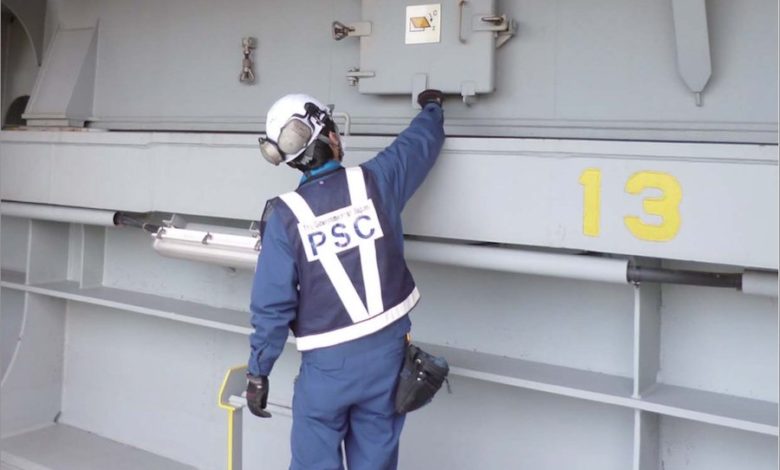Paris MOU bans record number of ships

The latest annual report from the Paris MOU describes the high number of ships that have been refused access to the region over the past three years as “alarming”. Refusal of access – banning – has been used 65 times since 2015, and the 33 cases in 2017 is an all-time record, according to a report carried by P&I Club Gard. While “multiple detentions” has been the main cause of ships being banned, “failing to call at an indicated repair yard” has also been reported as a common cause. In 2017, several ships were banned a second time after multiple detentions, resulting in a minimum banning period of 12 months.
After a slight decrease of the total number of inspections carried out in the Paris MOU region last year, the number has increased in 2017 to 17,916. The increase of the detention percentage from 3.42% in 2015 to 3.84% in 2016 has stabilised in 2017 at 3.82%. For Black, Grey and White listed flags respectively, the detention rates were 16.8%, 7.4% and 2.5%.
In the Tokyo MOU region, on the other hand, the detention percentage continues to decrease while the number of inspections carried out remains stable. Only 941 detentions (3%) were recorded in the region during 2017, which is the lowest number of detentions ever recorded, and the first time it is below 1,000, in the past two decades. However, Tokyo MOU warns that the average number of detainable deficiencies per detention has been increasing in the last three years and that this may be interpreted as a trend that conditions of some substandard ships are becoming worse.
The five most frequently deficiencies recorded by the Paris MOU in 2017 were: “ISM” (4.35%), “fire doors/openings in fire-resisting divisions” (2.51%), “nautical publications” (2.28%), “charts” (1.96%); and “voyage or passage plan” (1.46%). The first four are consistent with 2016 while the “voyage or passage plan” has replaced “oil record book”.
“Fire safety measures”, “safety of navigation”, “lifesaving appliances”, “load line” and “stability, structure and relevant equipment” were the five main categories of recorded deficiencies in the Tokyo MOU region, with “lifeboats” being the most frequent cause for detainable deficiencies.
